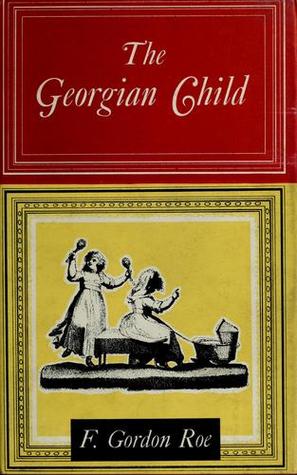When I picked up F. Gordon Rowe’s The Georgian Child, I was breaking one of my general reading rules, I was reading for a specific purpose, It’s not a rule I can hold to all the time, especially if I’m researching for something I’m writing, but I find that I never meet a book on the best terms when there’s something I specifically want out of it.
That was very much the case with this book. I was hoping for a decent overview of eighteenth-century childhood with a few specific elements I can feed into the novel I’m currently writing, which depicts the life of a child in the 1710s. Not only did I not get that, I don’t think that was the book Rowe wanted to write.
He’d previously written The Victorian Child, a book which drew on a little research and a lot of anecdotes from his older relatives to give the texture of Victorian childhood. He seems to have gone to the same research and anecdotes for this because most of the book was about how his older relatives had remembered such-and-such from their Victorian childhood and that he suspects that it must have held true for the Georgians also. He gets a lot of play from this notion of ‘Georgian’, because it meant most of his example could come from the 1820s - 1790s at a push.
What’s more, when something specifically eighteenth-century was mentioned, it wasn’t particularly related to childhood. There’s a whole bunch of babble about the Hanoverian succession and Jacobites at the beginning, where he reveals himself to be a big fan of the King Over the Water, something which also fed into another babble about tartan in the Victorian era.
He talks a little bit about famous Georgian children, which meant he could fill a few pages retelling the story about Jack Shepherd, though what that could tell us about the average Georgian childhood beyond the notion of apprenticeship and how the poor are up fast, it’s hard to say. There could have been a bit about apprenticeships in general, how they worked, what they did, how long they lasted - but there wasn’t anything. He also talks about William Betty, has a few sniggers about Bettymania but doesn’t really go into how crazy it was, or example, he played Hamlet in an adult cast to packed theatres at the age of 11.
The two chapters about children’s dress were okay, but they essentially said little more than children under 5 or so wore unisex dresses (so unisex that later portraits of boys were thought to be girls). After that, they wore smaller versions of adult fashions, often hand-me-downs. So then Rowe could talk about adult fashions a little.. as always, seeming happier when he was veering away from the book’s topic of The Georgian Child.
There’s a little about toys and games, but most of that chapter was about how Georgian children played games Victorian children would have found babyish. There’s also a lot of digs at Georgian adults and how they seemed to play babyish games also. There’s a little about schools, about the depiction of cruel, whipping headmasters and how Sunday schools were a Victorian thing. I learnt that an older name for a see-saw was a swing-swang. I learnt the name of a game called ‘tip-cat’ but I had to use the internet to find out how to play it.
While my lack of enjoyment for this book may have principally come from it not fulfilling my needs from it, I do feel that just as I didn’t get much from reading it, F Gordon Rowe didn’t get much from writing it.



No comments:
Post a Comment